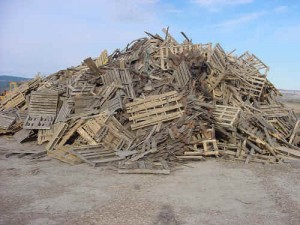 Jim Wallis, one of the leaders of what might be termed the Christian Left, has now come out in favor of same-sex marriage. Ever since his days as a member of the 1960s radical group Students for a Democratic Society, which was grounded in socialist/communist philosophy, Wallis has tried to walk a fine line in an attempt to marry [pun intended] Biblical principles with a humanistic, atheistic worldview. It has been as spectacularly unsuccessful as the same-sex unions he now supports.
Jim Wallis, one of the leaders of what might be termed the Christian Left, has now come out in favor of same-sex marriage. Ever since his days as a member of the 1960s radical group Students for a Democratic Society, which was grounded in socialist/communist philosophy, Wallis has tried to walk a fine line in an attempt to marry [pun intended] Biblical principles with a humanistic, atheistic worldview. It has been as spectacularly unsuccessful as the same-sex unions he now supports.
Wallis is the proverbial tip of the iceberg. He’s only the most obvious spokesperson for a phenomenon that threatens to split evangelicalism while it simultaneously destroys our Biblical basis for morality, law, and government. Can such views really coexist with what C. S. Lewis has called “mere Christianity”?
Genuine Christians can disagree on doctrine. They can disagree on how the Christian faith is demonstrated in society. There certainly is room for liberty of conscience. Yet when does liberty become licentiousness?
I disagree with Christians who espouse pacifism, but I don’t count them out of the kingdom; I merely consider them incorrect in their understanding of Scripture. I profoundly dissent from those who believe the government should follow policies of redistribution of wealth to achieve “fairness.” Many who promote this do so out of concern for the poor, yet they don’t realize how this vision of “helping” violates a number of Biblical principles and ultimately fails in its goal. They haven’t learned the lessons of history. Their hearts may be right in their desire to help, but all they accomplish is to spread the misery around.
It gets dicier when those who claim the name of Christ begin to advocate for positions that are directly contradictory to basic Biblical morality. Can someone really be a genuine Christian and promote abortion, or at least not be concerned about it? Is it simply a mistake when a professed Christian finds reasons to excuse homosexual behavior or is it rather a manifestation of a deeper rebellion against God’s call for holiness? I have my opinions on that, but, thankfully, God will be the final judge.
 Thinking about this led me to a particular passage of Scripture, found in 1 Corinthians 3: 11-15. Here the apostle Paul speaks of how the Lord will judge the actions of His disciples:
Thinking about this led me to a particular passage of Scripture, found in 1 Corinthians 3: 11-15. Here the apostle Paul speaks of how the Lord will judge the actions of His disciples:
For no man can lay a foundation other than the one which is laid, which is Jesus Christ. Now if any man builds on the foundation with gold, silver, precious stones, wood, hay, straw, each man’s work will become evident; for the day will show it because it is to be revealed with fire, and the fire itself will test the quality of each man’s work. If any man’s work which he has built on it remains, he will receive a reward. If any man’s work is burned up, he will suffer loss; but he himself will be saved, yet so as through fire.
The clear teaching is that in order to be a Christian, our foundation must be nothing else than absolute faith in Christ as Lord and Savior. As long as we have repented of sin, received His forgiveness, and are now motivated by His love, we are part of His kingdom. However, not all our works for Him have the same value. Some are described as especially fruitful—gold, silver, precious stones—while others are virtually useless for building the kingdom—wood, hay, and straw.
I submit that when those who seek to build God’s kingdom with ideas that undermine the very kingdom they seek to build, their works will be shown to have been nothing more than wood, hay, and straw. They will have done more damage than good. We should all examine our motives and our actions continually. I know I don’t want to feel shame when that “day” comes.
